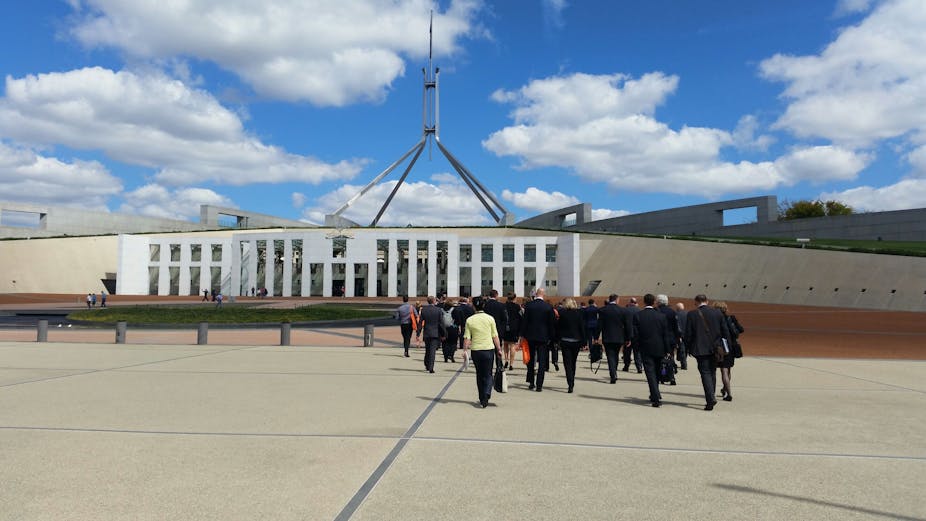Boarding the flight back from Canberra felt like stepping back through the magic wardrobe from Narnia.
I had been attending the annual Science meets Parliament event on behalf of The Psychology Foundation of Australia. I was one of 200 scientists representing the “science” of everything from crystallography through to entomology.
As a research academic, you are always aware that your research – and in some instances your entire career – depends on the decisions and opinions of “the government.” But I have to confess that exactly what “the government” meant in this context was not something I had thought much about.
Sure I understood that there is no bottomless pool of money. Nor was I ever so deluded as to think that every good person and every good project could – or even should – be supported by public funds. However, the mechanics of how decisions are made and the role that different groups and individuals play in this process was totally foreign to me.
One of the main things I gained from my two days in Canberra was a greater appreciation of how hard our politicians work. Or more importantly, how many different demands they have on their time and their attention.
After a day of talks we were all invited to a Gala Dinner where we heard from both Ian Macfarlane, Minister for Industry and Science, and the Leader of the Opposition Bill Shorten.
The talks were interesting, but it was the conversation I had with the politician assigned to our table, Senator Christopher Back, that gave me a glimpse into the lives of our politicians. Just as our meal arrived, bells started ringing and lights started flashing – a signal for him to leave immediately to cast a vote. As he sat back down the bells went again and he was off one more time.
He explained that the bells (and the accompanying votes) continue from morning to late evening on each sitting day. More surprising was his comment that he is normally only able to spend 20 days a year in his local Perth office as he is either in Canberra or travailing for work the remaining time. I can’t imagine how hard it would be to perform the juggling act between work and family in the political setting.
Now, all of this is not to let the politicians off the hook. It does not reduce the need for good decisions. Rather, I now understand why we are so often encouraged to engage with the public and do everything we can to increase awareness and interest in the work being done by scientists across the country.

We are competing against so many other stories and agendas that the first task is to break into the media cycle and simply bring an issue to the attention of the public and the politicians. To then maintain their interest long enough to actually inform or persuade them is only going to be possible through the exhaustive and coordinated efforts of strong leaders.
It was in respect to this last point that I was left feeling optimistic and genuinely inspired by the two people who are most visibly championing our cause at the moment: Australia’s Chief Scientist, Ian Chubb, and Nobel Laureate, Brian Schmidt.
While it is unsurprising that our Chief Scientist is an outspoken advocate of Australian science, we should all be thanking the Nobel gods that they awarded The 2011 prize for Physics to a Canberra local, who is not only passionate about supporting science, but is also one of the rare breed that seems as comfortable talking to politicians as he does with scientists.
Now we just have to cross our collective fingers that by the time the budget is announced, Professor Chubb (and all of those behind him) have done enough to convince “the government” that science matters. Or, more importantly, that those doing it are a resource that add value to this country and are worthy of support.

